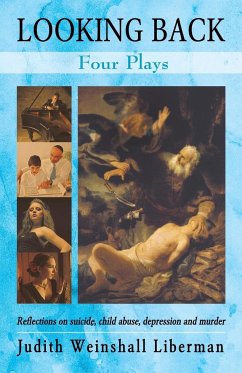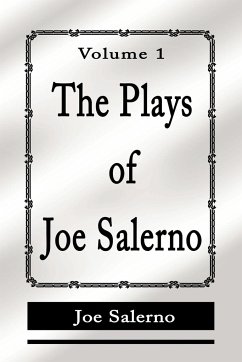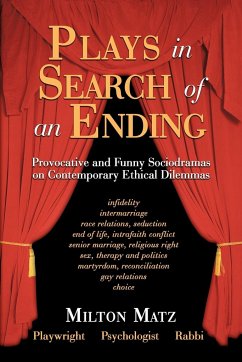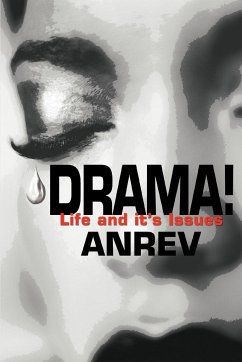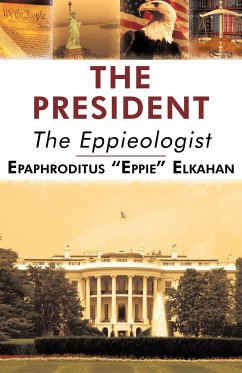The four plays in this collection were all written after Judith Weinshall Liberman reached her eighties. One play, EMPATHY, was inspired by a period in the playwright's life, when her husband, then only 52, suffered a stroke which rendered him unable to play the piano and led to his severe depression. The other three plays - GOOD OLD ABRAHAM, MICHAL and SISERA'S MOTHER - were inspired by Old Testament stories which the playwright studied in elementary school in her native Israel but upon which she bestows, in her plays, a mature perspective that raises questions relevant to our times.
Looking Back, the first collection of published plays from visual artist Judith Weinshall Liberman, brings the ineffable human experience to life, to the stage, and to the imagination. Written in her eighties, these four new plays explore a journey to understanding, as filtered through a mature perspective that raises questions relevant to our times. When her husband, a professor of law and a gifted pianist, suffered a stroke in his early fifties, everything changed. A heartfelt study of their shared journey to understanding and compassion, Empathy explores the impact of life-altering illness on a family. Until recently, Liberman never questioned biblical Abraham¿s obedience to God, but after a lifetime of reflection, that all changed. Good Old Abraham questions the rationality and morality of Abraham¿s behavior and his suitability for the positive symbolic role accorded to him by history. Like Michal, daughter of King Saul, Liberman has known the agony of grief in wartime. The loss of her only brother during the Israel War of Independence in 1948 inspired Liberman to create Michal, in which a young woman is caught up in forces beyond her control. As in her other plays, the implications of Siseräs Mother extend beyond the confines of the drama. A lifetime of contemplation about the war against the Canaanites revealed something extraordinary to Liberman: the Canaanite commander¿s mother was not a villain but the tragic victim of man¿s inhumanity. A profound and achingly beautiful passage into the human experience, Looking Back brings new light to timeless issues.
Looking Back, the first collection of published plays from visual artist Judith Weinshall Liberman, brings the ineffable human experience to life, to the stage, and to the imagination. Written in her eighties, these four new plays explore a journey to understanding, as filtered through a mature perspective that raises questions relevant to our times. When her husband, a professor of law and a gifted pianist, suffered a stroke in his early fifties, everything changed. A heartfelt study of their shared journey to understanding and compassion, Empathy explores the impact of life-altering illness on a family. Until recently, Liberman never questioned biblical Abraham¿s obedience to God, but after a lifetime of reflection, that all changed. Good Old Abraham questions the rationality and morality of Abraham¿s behavior and his suitability for the positive symbolic role accorded to him by history. Like Michal, daughter of King Saul, Liberman has known the agony of grief in wartime. The loss of her only brother during the Israel War of Independence in 1948 inspired Liberman to create Michal, in which a young woman is caught up in forces beyond her control. As in her other plays, the implications of Siseräs Mother extend beyond the confines of the drama. A lifetime of contemplation about the war against the Canaanites revealed something extraordinary to Liberman: the Canaanite commander¿s mother was not a villain but the tragic victim of man¿s inhumanity. A profound and achingly beautiful passage into the human experience, Looking Back brings new light to timeless issues.
